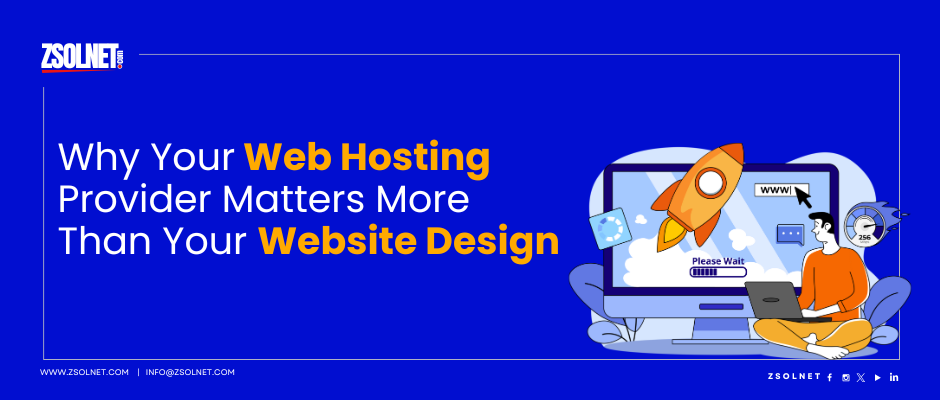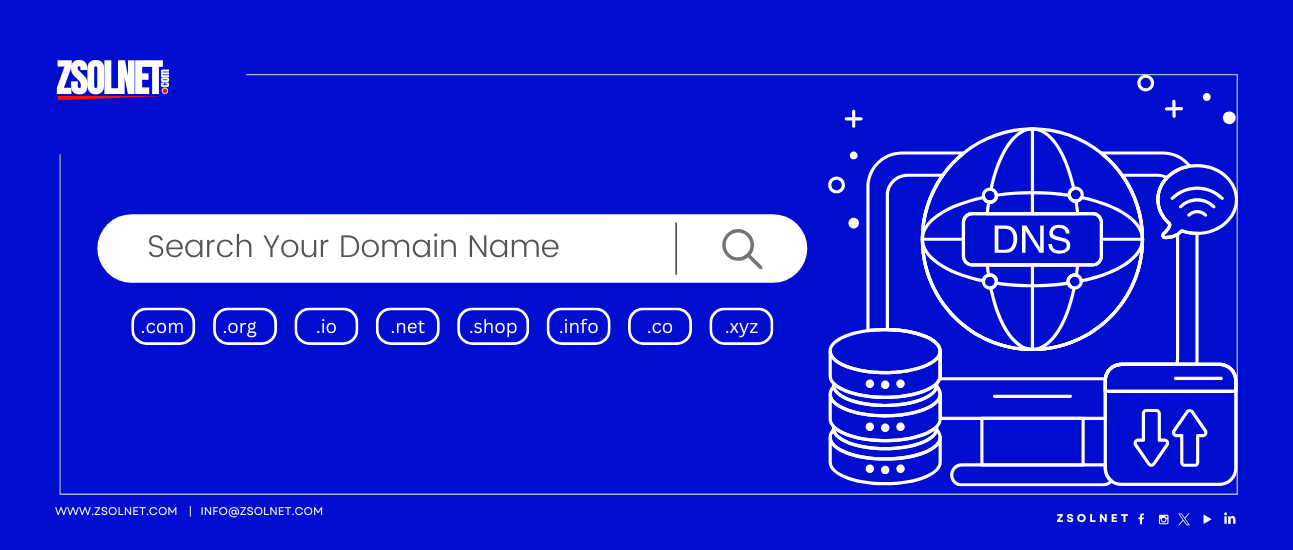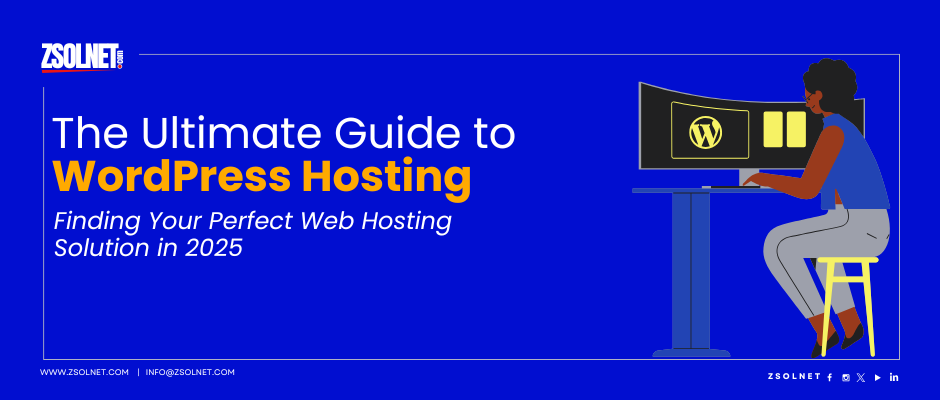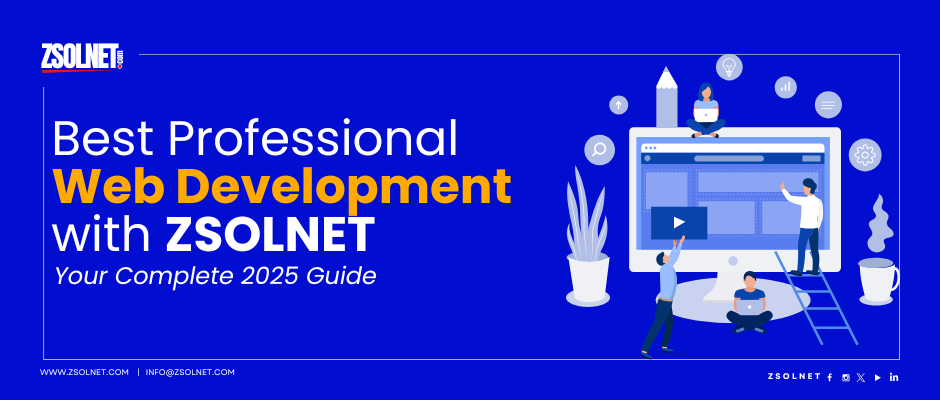Executive Summary
When building a website, many businesses focus heavily on design while underestimating the critical role of web hosting. This article explains why your hosting provider is the foundation that determines your site’s performance, security, and ultimate success. We examine how hosting directly impacts page speed, security vulnerabilities, uptime reliability, and search engine rankings, often with more significant business consequences than design choices. Through case studies and performance metrics, we demonstrate how the right hosting solution delivers better ROI than design investments alone and provide a framework for evaluating and selecting the optimal hosting provider for your business needs.
Introduction
In the digital landscape, businesses often prioritize the aesthetics of their website, investing heavily in design elements while overlooking a critical foundation: web hosting. While an attractive website can capture attention, it’s your hosting provider that ensures visitors can actually see and interact with your site effectively. At ZSOLNET, we’ve observed that even the most visually stunning websites fail when built on inadequate hosting infrastructure.
The Hidden Foundation of Your Online Presence
Think of your website as a house. Website design represents the interior decoration, paint colors, and furniture arrangements elements that make it visually appealing. Web hosting, on the other hand, is the foundation, structural framework, plumbing, and electrical systems. Without a solid foundation, even the most beautiful house becomes uninhabitable.
According to a 2024 study by Portent, 47% of users expect a website to load in under 2 seconds, and conversion rates drop by an average of 4.42% for each additional second of loading time. No amount of design excellence can overcome poor performance caused by substandard hosting.
The Real Cost of Poor Hosting Decisions
Consider these statistics:
- A 1-second delay in page response can result in a 7% reduction in conversions (Amazon)
- 53% of mobile site visitors abandon pages that take longer than 3 seconds to load (Google)
- Websites that load within 5 seconds experience 70% longer average sessions (Pingdom)
How Your Hosting Provider Impacts Core Website Metrics
1. Website Speed and Performance
Your hosting provider is the primary determinant of website speed, which directly impacts:
| Performance Factor | Impact on Business | Hosting’s Role |
|---|---|---|
| Page Load Time | 40% of visitors abandon sites that take >3 seconds to load | Server response time determines initial load delay |
| Time to First Byte (TTFB) | Critical SEO ranking factor | Directly controlled by hosting server quality |
| Content Delivery | Global accessibility | CDN integration and server locations |
| Peak Traffic Handling | Revenue protection during high-demand periods | Server resources and scalability options |
2. Security and Protection
Even the most beautifully designed website becomes a liability if compromised:
- 30,000 websites are hacked daily, according to Cybersecurity Ventures
- The average cost of a data breach reached $4.45 million in 2023 (IBM Security)
- 60% of small businesses that suffer a cyber attack close within six months
Quality hosting providers offer:
- Automated backup systems
- Malware scanning and removal
- DDoS protection
- SSL certificate management
- Server-level firewalls and security protocols
3. Reliability and Uptime
Your website’s availability directly impacts customer trust and revenue potential:
Site Availability Annual Downtime Potential Lost Revenue
99.9% uptime 8.76 hours $8,760 (at $1,000/hour)
99.99% uptime 52.56 minutes $876 (at $1,000/hour)
99.999% uptime 5.26 minutes $87.60 (at $1,000/hour)
Premium hosting providers guarantee uptime of 99.9% or better, with financial compensation for any failures to meet these service level agreements (SLAs).
4. SEO Rankings and Visibility
Search engines prioritize user experience metrics that are heavily influenced by hosting:
- Page load speed is a confirmed Google ranking factor
- Mobile responsiveness (affected by server configuration) influences rankings
- Core Web Vitals, which include Largest Contentful Paint and First Input Delay, are directly impacted by server performance
A Backlinko study found that websites loading in 1.7 seconds or less ranked on average 5 positions higher in Google search results compared to sites with similar content but slower load times.
Types of Hosting Solutions: Finding Your Match
Different businesses have different hosting needs. Understanding the options helps you make informed decisions:
Shared Hosting
Best for: Small businesses, blogs, and startups with modest traffic
- Pros: Affordable (typically $3-10/month), easy to set up
- Cons: Limited resources, potential “noisy neighbor” effect
- Performance impact: Generally adequate for sites with <10,000 monthly visitors
VPS (Virtual Private Server) Hosting
Best for: Growing businesses, e-commerce sites with moderate traffic
- Pros: Dedicated resources, better performance than shared hosting
- Cons: Requires more technical knowledge, mid-range cost ($20-80/month)
- Performance impact: Supports 10,000-100,000 monthly visitors effectively
Dedicated Server Hosting
Best for: Large businesses, high-traffic websites, resource-intensive applications
- Pros: Maximum performance, complete control, optimal security
- Cons: Higher cost ($100-500+/month), requires technical expertise
- Performance impact: Handles 100,000+ monthly visitors with ease
Cloud Hosting
Best for: Businesses with fluctuating traffic, scalability needs
- Pros: Flexible resources, pay-as-you-go pricing, excellent reliability
- Cons: Costs can be unpredictable, potential complexity
- Performance impact: Scales automatically to handle traffic surges
Case Study: Design vs. Hosting Impact
To illustrate the relative importance of hosting versus design, consider this real-world example:
An e-commerce company invested $50,000 in a website redesign but continued using budget shared hosting ($8.99/month). Despite the beautiful new interface, the site experienced:
- 6-second average page load times (industry benchmark: <2 seconds)
- 18% cart abandonment rate (industry average: 70%)
- Frequent downtime during promotional events
- Poor mobile performance scores
After migrating to a managed cloud hosting solution ($189/month):
- Page load times decreased to 1.8 seconds
- Cart abandonment rate dropped to 64%
- Zero downtime during peak traffic periods
- 42% increase in mobile conversions
The ROI of the hosting upgrade was realized within 45 days, while the design investment took 14 months to recover costs.
How to Evaluate Your Current Hosting Provider
Are you getting what you need from your hosting provider? Use this checklist to evaluate:
- Speed Test
- Run your website through tools like GTmetrix or Pingdom
- TTFB should be under 200ms
- Full page load should be under 3 seconds
- Uptime Monitoring
- Set up third-party monitoring (Uptime Robot, StatusCake)
- Track actual uptime against provider SLAs
- Document any patterns of downtime
- Support Quality
- Average response time to support tickets
- Technical expertise of support staff
- Availability of multiple support channels
- Security Measures
- Frequency of security updates
- Backup procedures and restoration options
- Malware scanning and removal services
When to Consider a Hosting Migration
Warning signs that indicate it’s time to switch hosting providers:
- Consistent Core Web Vitals failures
- Unexplained downtime exceeding 0.1% monthly
- Security breaches or malware infections
- Support response times exceeding 4 hours
- Inability to handle traffic spikes during promotions
Read Also: 5 Website Maintenance Tasks You Should Be Doing Monthly
Making the Transition: Key Steps for Hosting Migration
When you decide to upgrade your hosting, follow these best practices:
- Pre-Migration Audit
- Document all website files, databases, email accounts
- Take fresh backups of everything
- Record current DNS and domain settings
- Timing Strategy
- Schedule migration during low-traffic periods
- Allow sufficient time for DNS propagation (24-72 hours)
- Set up temporary maintenance pages
- Post-Migration Verification
- Test all website functionality thoroughly
- Verify email delivery and reception
- Check SSL certificate installation
- Run performance tests to confirm improvements
Balancing Design and Hosting for Optimal Results
While this article emphasizes hosting importance, the ideal approach combines quality hosting with thoughtful design:
Priority Framework:
- Secure, reliable hosting foundation
- Performance-optimized architecture
- Mobile-responsive framework
- User experience design
- Visual aesthetics and branding
By prioritizing in this order, you ensure that your beautiful design can actually be experienced as intended by visitors.
Read Also: Why ZSOLNET’s Web Hosting Is Built for Speed, Security & Scale
Conclusion: The Foundation of Digital Success
Your website’s design may be what initially attracts visitors, but your hosting provider determines whether those visitors stay, engage, and convert. In the increasingly competitive digital landscape, businesses can no longer afford to underinvest in hosting infrastructure.
The right hosting solution delivers:
- Faster page loads
- Improved search rankings
- Enhanced security
- Better user experience
- Higher conversion rates
- Greater return on your overall digital investment
At ZSOLNET, we recommend evaluating your hosting needs based on current traffic, growth projections, and business-critical functions rather than selecting providers based solely on price. The right hosting partner becomes an invaluable asset in your digital strategy, ensuring that your beautifully designed website actually delivers the results you expect.
Ready to reassess your web hosting solution? Contact our team for a free hosting performance audit and discover how the right hosting infrastructure can transform your website’s effectiveness.




